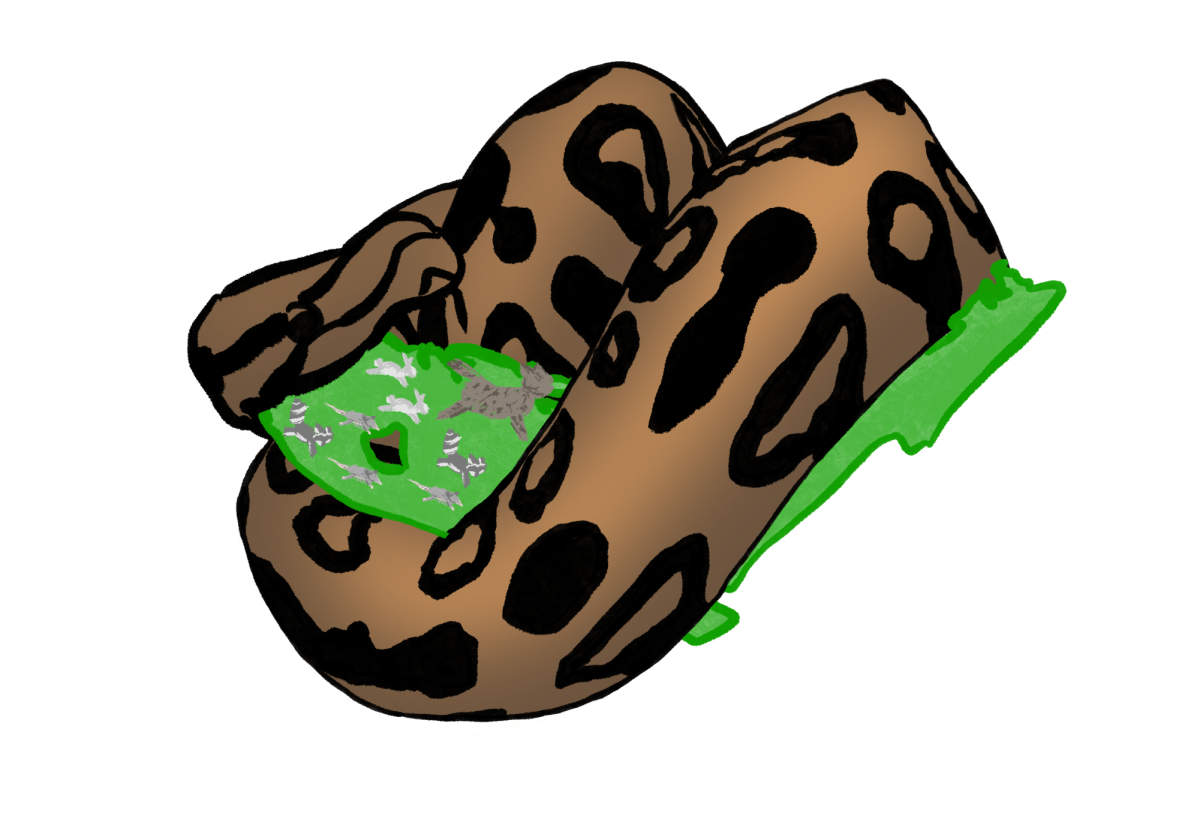Florida has one of the most diverse ecosystems in the world, with habitats from coral reefs to the Everglades. But this incredible environment is at risk of becoming a wasteland due to alien invaders known as invasive species.
Invasive species are non-native species that often disrupt local ecosystems. They range from slightly harmful to detrimental to the local ecosystems. Some of the less harmful species, such as the black rat, can cause minimal to no damage. However, more detrimental species, like the Python, can wipe out native species from an ecosystem entirely.
“The Burmese python’s an issue in southern Florida”, said science teacher Brandon McDermed. “It’s disrupting the food chain, and there’s really no predators [of it].”
The Burmese Python is the most dangerous to the local wildlife due to massive amounts of eggs and huge appetites. There are over 300,000 Pythons in Florida, and their population continues to grow. The Python has all but wiped out rabbits and foxes from the Everglades as well as dropped smaller mammal numbers by as much as 98%. However, the Python has the largest impact on other predators within the ecosystem.
Florida doesn’t just have invasive species on land, it also has many invasive fish who likewise range from not harmful to catastrophic for the environment.
“[The lionfish] is a big deal because there’s nothing that eats it, and so it is very problematic,” McDermed said.
The Lionfish are very problematic because of the massive number of them in the ecosystem and the absence of predators. Every four days, Lionfish release 12,000 to 15,000 eggs which reach maturity in less than a year, and are also prolific predators that feed on over 70 different species.
The Everglades has been hit the hardest by invasive species on land and water and has been severely terrorized by the python, although, the most destructive to humans is the Wild Hog.
“The Wild Hog is the most destructive just because of what they can do to crops and fields,” McDermed said.
Many of these species like the Python are here to stay. They have almost no hunting competition and an abundance of food, we can learn from them to prevent potential invasive species. The reason many invasive species come to Florida is human intervention and things that people could have stopped.
“It’s the illegal pet trade or it’s mostly human,” McDermed said. “We’ve brought them here for whatever reason, but they’ve escaped.”
Florida is already overrun with invasive species but thankfully, they are not spreading across the country. The reason is that Florida has a unique climate where it never freezes. This makes it an ideal habitat for tropical species and reptiles, birds, and other cold-blooded animals. Florida also has very warm water, which never gets below 66 degrees and can get into the 90s.
All these factors make it the perfect habitat for all kinds of animals. Fortunately, the reptiles and birds can’t spread north of Florida due to the freezes so their spread is contained. The animals wouldn’t leave Florida even if they could because of the abundance of food and habitat.
“I mean, as long as they meet their criteria of a good food source, good shelter, and they can reproduce, there would be no reason for them to want to leave,” McDermed said. “If the environment stays the way that it is and everything is beneficial to them, then there would be no reason to leave.”
Florida already has many species that are here to stay however there are ways that people are fighting back. There are many private hunters for hire to control the wild hog population and many fishermen have banded together to fight the invasive Lionfish. In South Florida, the annual Python hunt removes hundreds of snakes from the Everglades that would otherwise be destroying the ecosystem.




